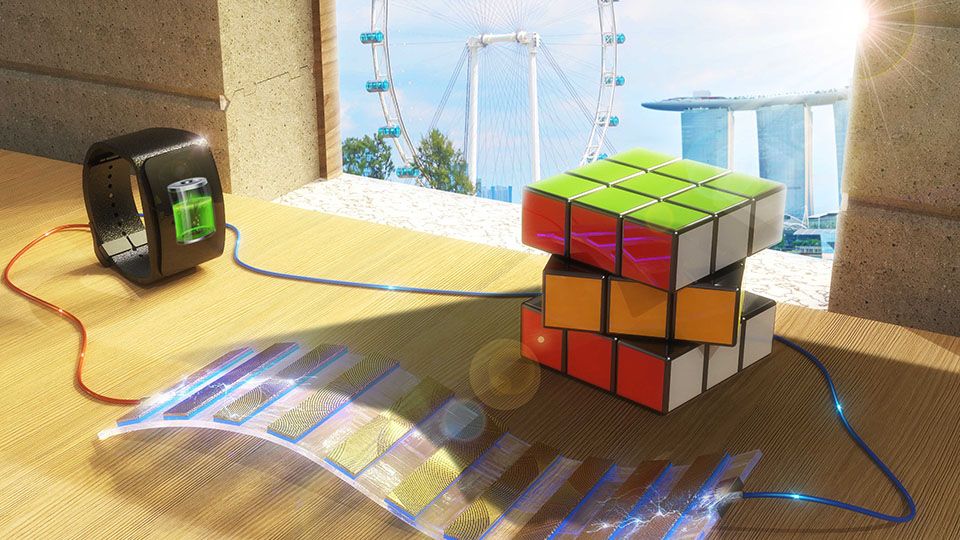Researchers have created a device called a ‘shadow-effect energy generator’ that makes use of the contrast in illumination between lit and shadowed areas to generate electricity. This novel concept opens up new approaches in harnessing indoor lighting conditions to power electronics.
Shadows are often associated with darkness and uncertainty. Now, researchers from the National University of Singapore (NUS) are giving shadows a positive spin by demonstrating a way to harness this common but often overlooked optical effect to generate electricity.
“Shadows are omnipresent, and we often take them for granted. In conventional photovoltaic or optoelectronic applications where a steady source of light is used to power devices, the presence of shadows is undesirable, since it degrades the performance of devices. In this work, we capitalised on the illumination contrast caused by shadows as an indirect source of power. The contrast in illumination induces a voltage difference between the shadowed and illuminated sections, resulting in an electric current. This novel concept of harvesting energy in the presence of shadows is unprecedented,” explained research team leader Assistant Professor Tan Swee Ching, who is from the NUS Department of Materials Science and Engineering.
